CHELSEA CLINTON
I believe that the stories we share with our children are profoundly important – to spark imagination, fuel dreams, and to shape the way we see our world. A Wrinkle in Time by Madeleine L’Engle was my favourite book in elementary school and I still think about it today. The protagonist, Meg Murry, is one of the great young reader characters of any gender, of any genre, science fiction or otherwise – and it gives me hope because of just that. As Sally Ride [the physicist and astronaut] said: “You can’t be what you can’t see.” I think a lot of girls see themselves in Meg, and L’Engle continues to capture our imaginations, and sends a powerful message to young readers.
• Chelsea Clinton’s She Persisted Around the World is published by Philomel.
PHILIP PULLMAN

The Anatomy of Melancholy by Robert Burton is the sanest and funniest book I’ve ever read. It was first published in 1621, and has been in print ever since. How can a hundred words do justice to this marvel of deep human sympathy, exquisite psychology, and rough good sense? Open any of its thousand or more pages at random and you’ll find better advice and consolation, and more sheer life-giving energy, than anyone else has ever managed to muster. And it’s unfailingly funny. Where else will you find a description of palm trees falling in love? This is the book I want beside me for the rest of my life.
• Philip Pullman’s The Book of Dust Vol 1: La Belle Sauvage is published by David Fickling.
JACQUELINE WILSON
The Language of Kindness: A Nurse’s Story may be a strange choice, as I was often moved to tears by some of the desperately ill patients Christie Watson writes about in her beautiful memoir – but it’s so wise, so compassionate, so honest that I find it uplifting. It gives me hope for our overstretched National Health Service – with nurses like Christie, who understand the importance of simple kindness, the world seems a better place. She was a truly dedicated nurse, and is currently a brilliant, award-winning writer.
• Jacqueline Wilson’s Rose Rivers (Hetty Feather series) is published by Doubleday Children’s.
KAMILA SHAMSIE

Set in Harlem in the 1920s, Jazz, by Toni Morrison, is a novel with no shortage of heartache and sorrow and violence. It knows there is injustice in the world and that everything will most certainly not be OK in the end. Why then does it give me hope? Because it’s such a miracle of a novel – generous, imaginative, sexy, human and often joyful. Sometimes art is a solace simply by virtue of being so very good that we know how fortunate we are simply to exist in the world alongside it.
• Kamila Shamsie’s Home Fire is shortlisted for the Women’s prize for fiction.
MICHAEL MORPURGO
Recently I have been translating Antoine de Saint-Exupéry’s The Little Prince. It was an extraordinarily life-affirming and joyful experience. I knew the book, had skimmed it often. But to translate was to delve deep, to lose oneself utterly in the mysteries of the story, into the music of the language, to try to under-stand every nuance. The best of humankind is in the character of the Little Prince: the kindness, the oddness, the endless inquisitiveness, the genius of creativity. There is a tenderness about the relationship between the aviator who has crash-landed in the desert and this strange human being that is so telling and touching. I know no character in fiction whom I would rather meet and talk to than the Little Prince. To be with him would be to get to know oneself better, to think more deeply, to see the world with fresh eyes, to live in new hope.
• Michael Morpurgo’s In the Mouth of the Wolf is published by Egmont.
ROSE McGOWAN
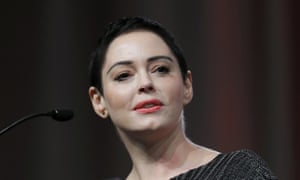
The Count of Monte Cristo by Alexandre Dumas. The hopelessness of character assassination and being trapped by evil people’s lies is something I know a little about. I fell in love with Edmond Dantès and his quest for justice long ago. Dumas’s writing helped form me. I wish I could thank him in person, but this will have to do.
• Rose McGowan is an actor, activist and author of Brave, published by HQ.
JIM BROADBENT
A Sentimental Journey by Laurence Sterne is a book I return to every few years and I am always delighted by it. The title is perhaps a bit misleading to us in the 21st century. To our ear “sentimental” suggests something a little contrived and manipulative, but A Sentimental Journey seems to me to be above all honest, and from that honesty comes a profoundly moving and exquisitely funny book. Yorick is such a recognisable character, so modern, that perhaps the opening line, “They order, said I, this matter better in France –” can give us hope that even now, 250 years later, we can still engage with the continent in a spirit of joy.
• Jim Broadbent is an actor and co-author of graphic novel Dull Margaret with artist Dix, published by Fantagraphics.
ELIF SHAFAK
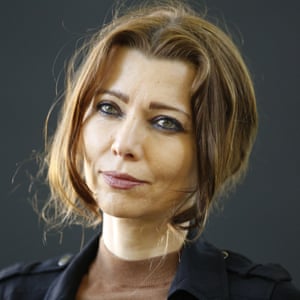
There are many books that give me hope, but the one book that I have carried with me wherever I go is Illuminations by Walter Benjamin. Benjamin is a fascinating writer, very difficult to place in any category. In some ways he is the son of his time, of a certain place and a moment in history. But in other ways he is timeless and placeless. A perpetual nomad, a dedicated flâneur. So many of the questions he raised are relevant, universal and remarkably timely today. Benjamin was aware that one might have lots of information about a particular subject, and yet might still have zero wisdom. We are bombarded by nuggets of information but that does not mean “knowledge” or “wisdom”. Benjamin’s work was strikingly interdisciplinary, his curiosity endless, his mind sharp and his soul open to hope and melancholy, faith and doubt. Reading and rereading Walter Benjamin will give us a clever kind of hope, one that understands the challenges of the world and has confidence in humanity nevertheless.
• Elif Shafak’s Three Daughters of Eve is published by Penguin.
AKRAM KHAN
For me, the true receptacles of hopefulness are those books that do not have recourse to the magical thinking involved in the various systems of belief. Gratitude, by Oliver Sacks, comprising a quartet of achingly poignant, coolly non-sentimental and beautifully concise pieces from the closing months of his life, projects an inspiringly powerful sense of equanimity in the face of dissolution. It induces an irresistible appreciation of the privilege of being alive and of the true hope that comes from an awareness that all the consolation for the trials and tribulations of our lives is to be found in a deep engagement in life itself.
• Akram Khan is professor of experimental particle physics and high performance computing, Brunel University London.
ROSE TREMAIN
This century feels like the End of Days. Terror, pity and exasperation crowd our minds. To whom or to what, then, can we turn to find hope? To the self, perhaps – and I don’t mean to the “selfie” we show off to others, but rather to the reflective, inner being who pays close attention to how a well-lived life might unfold. For guidance, read Sarah Bakewell’s clear-sighted distillation of Michel de Montaigne’s essays, How to Live, a wise and beautiful book I keep by my bedside. Via many endearing digressions and changes of heart, Montaigne talks to all our human fears and guides us towards freedom from our habitual “inanity and nonsense”.
• Rose Tremain’s Rosie: Scenes from a Vanished Life is published by Chatto & Windus.
LAURA MVULA
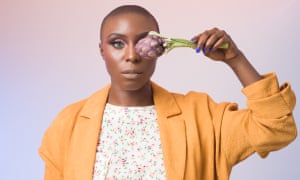
One of my favourite books and a constant in my life is The Famished Road by Ben Okri. It’s the tale of a young boy, Azaro, who is both lost and not lost in the spirit world and in the real world. I love the journey between the two dimensions, which combines a sense of mystery, a beautiful insight into and exploration of West African culture, while connecting you with a sense of wonder. Okri is my guru – a mentor who is able to take the simple truths and realities of life and realise them in stories and words that leave you breathless.
• Laura Mvula is a singer-songwriter whose album The Dreaming Room won an Ivor Novello award.
ALEXANDER MCCALL SMITH
Great poetry continues to speak to the reader long after the death of the poet. WH Auden’s work continues to speak to those who choose to listen; he changes the way we see things and offers hope. “In Memory of Sigmund Freud” is one of the most comforting pieces of poetry I know. It is about freedom and the ability to be ourselves – and the corrosive and limiting effects of repression and hate. He also wrote the poignant lullaby that begins “Lay your sleeping head, my love …” The moment I took a copy of Auden’s Collected Shorter Poems off the shelves in the university library, on impulse, was a moment of literary discovery; I’ve learned many lessons from his sympathetic understanding of the world and I carry this collection around with me always.
• Alexander McCall Smith’s The No 1 Ladies’ Detective Agency series celebrates its 20th anniversary this year.
ANURADHA ROY
I knew only a little about the artist Walter Spies until I read John Stowell’s Walter Spies: A Life in Art. Its combination of narrative, photographs, reproductions of paintings and long quotations from Spies’s eloquent letters reveals a fascinating character, an equally brilliant pianist, painter and linguist. Despite spending six of his 46 years imprisoned (because he was always on the wrong side of history), Spies altered the cultural landscape of Bali in the 1930s, working with local artists, creating great paintings, making music, and finding happiness even in prison cells. This book on his brief, dazzling life makes me hope that times as grim as the present will pass, and may even leave something good behind.
• Anuradha Roy’s All the Lives We Never Lived is published by MacLehose.
TISHANI DOSHI
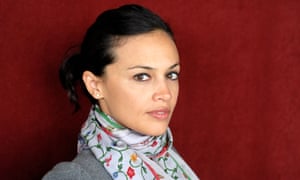
There’s something about the anti-sparkle aesthetic of Junichiro Tanizaki’s In Praise of Shadows that fills me with deep hope. Rather than look at the world through binaries of darkness and light, he sings of the glories of murk. And as we live in decidedly murky times, it would be better for us to get used to the “glow of grime”, to navigate our way by finding softness where we can – the warmth of a lacquer cup in our hands, a face in candlelight. His is a call to slowness, an investigation into the sources of illumination rather than the exterior shine, reminding us that beauty is in the shadows.
• Tishani Doshi’s Girls Are Coming Out of the Woods is published by Bloodaxe.
AMY LAMÉ
Women & Power: A Manifesto by Mary Beard packs a powerful punch in its 115 pages. Beard guides the reader through the ancient, deep roots of misogyny and explores how women through the ages have managed to break the (imposed) silence. Her promise of a “manifesto” does not disappoint. Practical calls to action are made, most importantly the demand that power must be redefined if women do not fit into the heteropatriarchal model so dominant for the last few millennia. I write this as Ben Broadbent, deputy head of the Bank of England, described the UK economy as “menopausal”. Reducing women to whether we menstruate or not – and linking that to “economic productivity” – is blatantly sexist. Women & Power gives me hope that there is a solution for gender inequality in the future – by firmly kicking it into the past.
• Amy Lamé’s From Prejudice to Pride: A History of the LGBTQ+ Movement is published by Wayland.
SUJIT SIVASUNDARAM
The more one travels the more the experience dulls in novelty. The Wonders of Vilayet: Wonderful Tales about Europe by Mirza Sheikh I’tesamuddin (translated by Kaiser Haq) makes one see the world through the honest eyes of a Muslim traveller in 1766, who undertook an extraordinary journey over sea. He left India as part of an embassy from the Mughal emperor Shah Allam II to the British court as its Persian scribe, or munshi. His description of Britain is totally fresh – it allows the reader to rethink the familiar, but also to consider how cultural exchanges between east and west were central to the making of our modern world.
• Sujit Sivasundaram is a historian at Cambridge University.
LAURA BATES

Rage Becomes Her by Soraya Chemaly will be published in September. It might seem strange to say that a book about women’s rage is the one that gives me most hope. But this book makes me hopeful because it is a rallying battle cry that underscores the fury of women that has been unleashed over the past year. It acknowledges the potent and justified sources of women’s rage and I hope it heralds the beginning of a new dawn where that anger is heard, and real change happens as a result.
• Laura Bates is co-founder of the Everyday Sexism Project and author of Misogynation, published by Simon & Schuster.
ANDRE ACIMAN
WG Sebald’s Autserlitz is dark, lyrical, moving, and at times simply ruthless in its manner of probing how we live in the wake of time. Time undoes us, and we do not always understand why it is that time is not so much about memory as it is ultimately about death. We look at the past, he seems to say, not because we long for it, but because it helps us avoid what lies in wait for us.
• André Aciman’s Enigma Variations: A Novel is published by Picador.
PATRICE LAWRENCE
I was born here, but do I really belong? The appalling treatment of Caribbean people who arrived here as children intensified my feelings of uncertainty. However, in my parents’ homelands, I am also an outsider. The beautiful, powerful The Wine of Astonishment by Earl Lovelace drew me into my mother’s island, Trinidad. It is social history viewed through the eyes of wise, empathetic Eva Dorcas, the wife of community and church leader Bee. In 1917, the colonial government banned Shouter Baptist worship, devastating community, identity and family relationships. It is a book about masculinity, betrayal, faith and colonialism. However, it is also about love, sacrifice and hope. When Bee can publicly preach again, he believes the Spirit has left him. He and his family leave the church and pass young men playing steelpan. “I watch Bee, Bee watch me ... the both of us bow, nod, as if, yes, God is great, and like we passing in front of something holy.”
• Patrice Lawrence’s Indigo Donut is published by Hodder Children’s Books.
AUDUR AVA ÓLAFSDÓTTIR
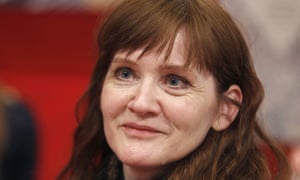
The Life Before Us, a novel by the French writer Romain Gary published in 1975, is an ode to the two most important things in life: unselfish love and the powerful force of imagination. The narrator is Momo, an Arab boy brought up by an elderly Jewish lady, a survivor of the Holocaust and former prostitute. It is through his innocent, philosophical mind, a sort of naive intelligence, that the author conveys his vision of history, human existence and the paradoxes that make us human.
• Audur Ava Ólafsdóttir’s Hotel Silence is published by Pushkin.
EMILY WILSON
Euripides’s Helen, first produced in 412BCE, takes the old Homeric storylines – “foreign boy meets married girl, huge war ensues, husband and wife get back together again” – and reinvents them in ways that are both playful and profound, as a happy-ending escape tragedy starring a Helen who never went to Troy in the first place. I find the play inspiring because it demonstrates so clearly how great works of literature can take on new meanings in different cultural moments, inviting us to relish the thrilling multiplicity of stories.
• Emily Wilson’s new translation of The Odyssey is published by WW Norton.
The Hay festival runs until 3 June. hayfestival.com.